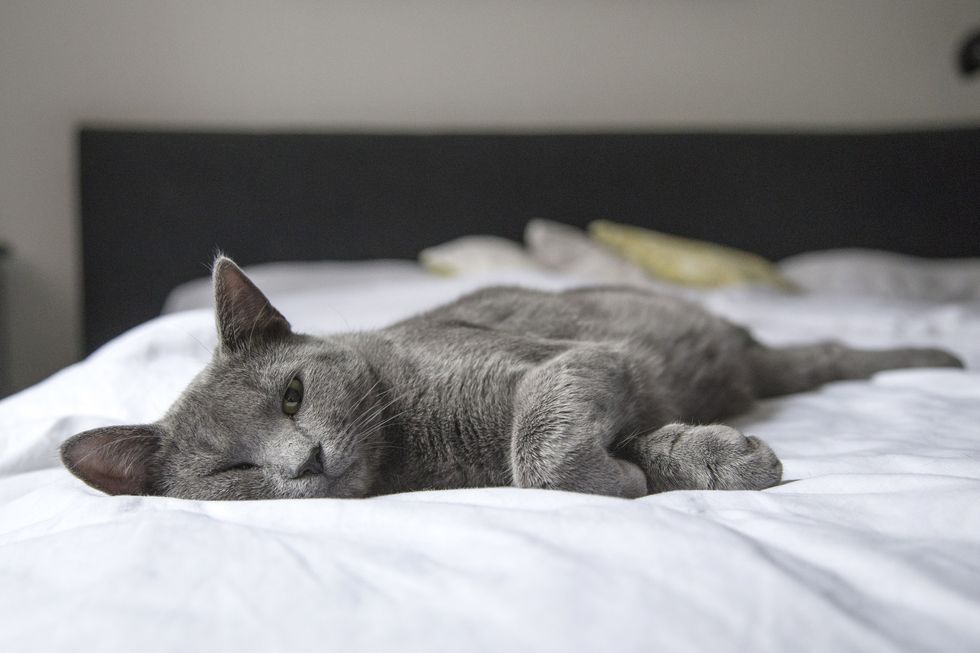Sometimes, one of the hardest parts of being an adult is having to get out of bed at a scheduled time.
The morning of my last final before graduating from college, I remember lying in bed, contemplating whether I should just sleep in. “I can always graduate next semester,” I reasoned.
Ultimately, I got up, drove to class, and took the test. And thankfully, I’ve grown to be a little more responsible since then. Along the way, I’ve also learned some helpful strategies that make getting out of bed less of a struggle.
Give them a try, and see if they make it easier for you to wake up and greet the day.
1. Schedule something you enjoy.
Sometimes we stay in bed to avoid something on our calendars that we’re dreading.
While you can’t eliminate all the unpleasant activities from your life, you can make sure you have something to look forward to in the morning.
You might set out the ingredients for your favorite breakfast or postpone your beloved nightly shower until morning. Or you might start your day with a relaxing activity like meditation or a walk around the block, to make getting out of bed feel less intimidating.
2. Adjust your thermostat.
Many of us cool our houses down when it’s time to go to sleep. And that’s smart because according to the National Sleep Foundation, “In general, the suggested bedroom temperature should be between 60 and 67 degrees Fahrenheit for optimal sleep.”
But a cold house becomes a problem when you wake up because you won’t want to leave the warmth of the covers. So, if your thermostat is able, consider programming it to warm the house up shortly before you need to wake up.
This will make getting out of bed feel like less of a chore.
3. Get more sunshine.
According to a fascinating article published by The British Council, the amount of sunshine you get during the day can impact what time you wake up.
The article explains that...
“For late chronotypes [think night owls], the stronger the light they are exposed to during the day, and the less light at night, the earlier they can wake in the morning. Night owls who spend two or more hours outdoors each day can set their chronotypes a whole hour earlier. This means they will feel tired an hour earlier than usual in the evenings, and wake an hour earlier in the mornings.”
4. Eat a lighter supper.
A healthy appetite is another incentive to get up and start the day. However, many Americans aren’t hungry in the morning because dinner is typically their biggest meal of the day. But this can be easily fixed — either by eating lighter suppers (and bigger lunches) or by eating dinner a bit earlier.
5. Do one thing.
It can be daunting to think about the day ahead when you’re resting comfortably in bed. So don’t think about the whole day. Just think about your very next task. Maybe it’s brushing your teeth or taking a shower. Go perform that activity and then see how you feel. In many cases, you’ll find yourself awake and ready to move forward.
6. Try to sync schedules with your partner.
Like many tasks that require determination, getting out of bed is easier when you don’t have to do it alone. If possible, try getting up at the same time as your partner. Just be careful if he or she is a chronic oversleeper, which might actually tempt you to join in and hit “snooze” instead of starting your day.
7. Improve the quality of your sleep.
Perhaps the most powerful thing you can do to make getting out of bed easier is getting quality sleep at night. This doesn’t necessarily mean going to bed earlier (though that might be a smart idea) but it does mean setting yourself up for a night of restorative sleep.
A few strategies include:
- Stop drinking caffeine at least 6 hours before bed.
- Limit exposure to light (especially blue light) before bed
- Cool your house down
- Get at least 150 minutes of exercise every week
And speaking more generally, eating a healthy diet helps the brain prime the body for healthy sleep.
Getting out of bed doesn’t have to feel so difficult.
Getting out of bed on time, with an optimistic attitude, is an empowering way to start the day. I know from experience that can be easier said than done, but with the ideas I just shared, it might also be easier than you think.
For years, I struggled to get up on time. But thanks to the 7 tips I just shared, I’m now much better at doing it consistently. They worked for me, and they just might work for you.
So, I hope you’ve enjoyed learning these strategies and been inspired to give them a try!






















